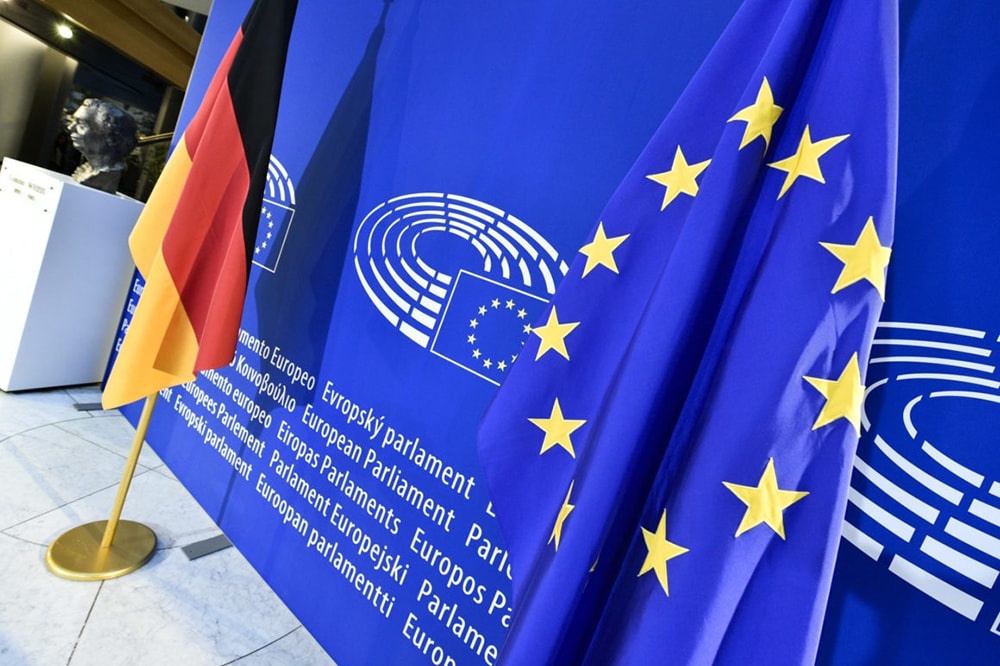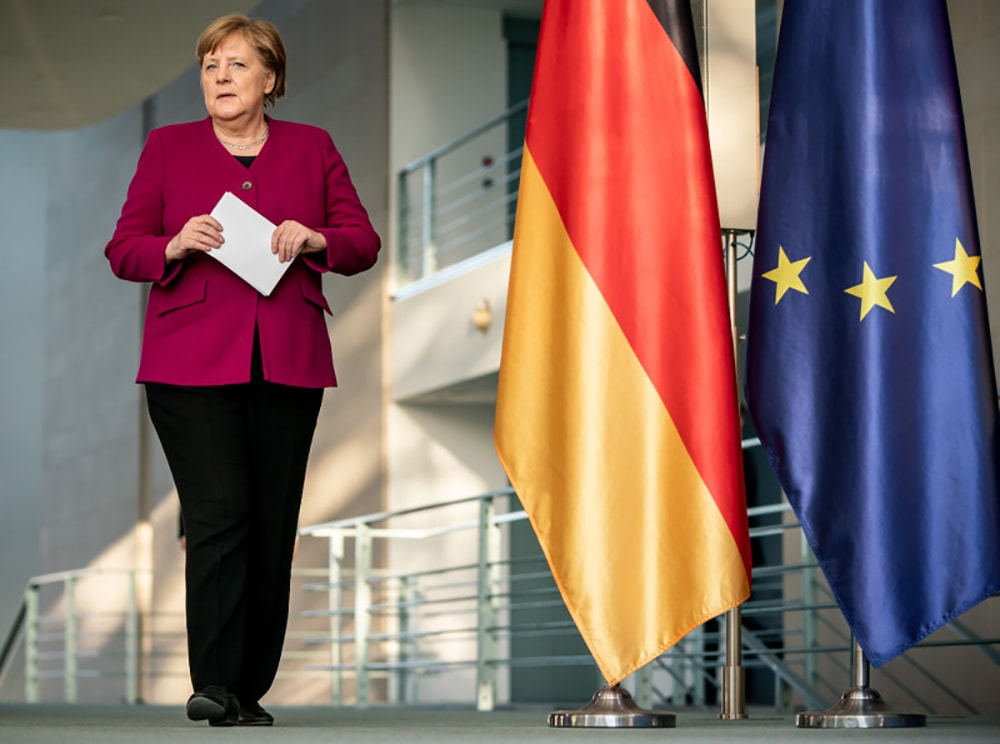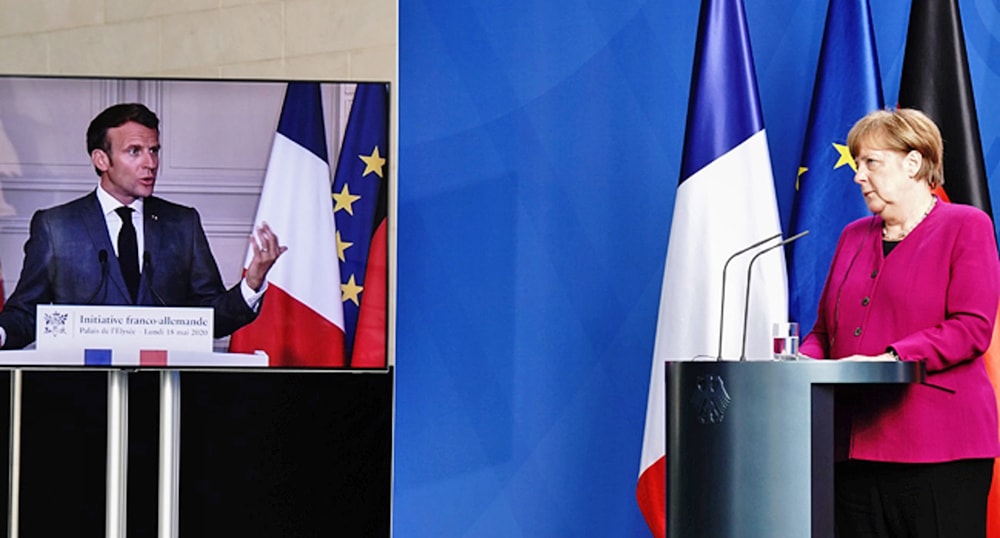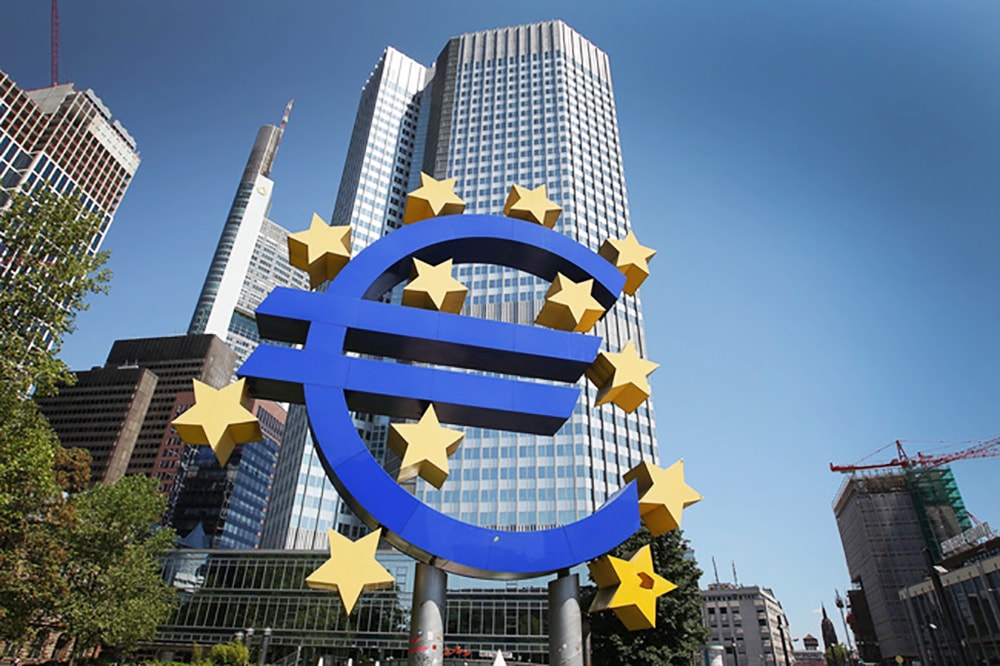Europe expects 'strong comeback' during Germany's EU presidency
(Baonghean.vn) - Germany will take over the presidency of the Council of the European Union for a rotating 6-month term starting today (June 1). Germany assumes this important position in a completely different context, a difference that the press has compared to the calm waters in a bay compared to the rough waves offshore. And the source of those rough waves is the Covid-19 pandemic...
Unexpected challenges from Covid-19
The last time Germany held the rotating presidency of the Council of the European Union was in 2007, when the most important agenda was to agree on a number of reforms to the Lisbon Treaty.
Now, in preparation for its presidency, Germany has had a long time to prepare with a carefully discussed list of priorities such as greenhouse gas control, relations with the UK in the “post-Brexit” period, the EU budget framework… But Covid-19 has pushed all those priorities aside, replaced by the central task: stopping the pandemic, easing social distancing and rebuilding the economy.
 |
| Germany takes over the presidency of the Council of the European Union from June 1. Photo: The Politico |
Covid-19 has not only exposed the European Union’s shortcomings in its response to the pandemic, but also shed light on the fact that member states are not able to coordinate to overcome difficulties. March was the month when Covid-19 was at its most severe on the continent, and it was also the month when European countries “went it alone” in imposing measures to limit the pandemic, showing that members prioritized solving national problems over solving European problems.
The current crisis has pushed European member states into an unprecedented difficult situation.
The strict border controls that were subsequently imposed by each country have disrupted the internal market and undermined the idea of a borderless Europe. The current crisis has plunged European member states into unprecedented economic and social difficulties, requiring decisive action from Germany as President of the Council of the European Union.
After many summits held during the pandemic, Europe seems to have found the right path, gradually returning to coordination and solidarity in dealing with the pandemic, demonstrated through joint procurement and distribution programs for medical equipment, and agreement on aid packages to rebuild the economy amounting to more than 1,000 billion Euros.
 |
| Chancellor Angela Merkel will face many challenges to lead the EU through the Covid-19 challenge. Photo: AFP |
Analysts say that Germany can take advantage of this platform to promote its agenda during the next 6-month presidency, "shake up" the spirit of European solidarity to focus on coordinated programs to prevent the epidemic, towards reopening borders. Because, only by reopening borders - at least internal borders - can cross-border aid sources be opened, the supply-demand system within the entire bloc be restored, and the basic freedoms of citizens of member countries be protected.
Germany will also have to focus on detailed discussions on the allocation of the Covid-19 economic recovery fund worth more than 1,000 billion euros, combined with the EU's Long-Term Financial Framework - an important foundation for the post-pandemic recovery of member states as well as the ability to respond to similar crises in the future. Germany is currently aiming to reach an agreement among member states to increase the future EU budget framework to more than 1% of the total national income of member states, considering this a priority not only economically but also politically to improve the ability to respond to crises.
Promoting the Franco-German mechanism
The challenges posed by the Covid-19 pandemic for the Presidency of the Council of the European Union are also an opportunity for Germany to escape the image that the leading European country has been “trapped” in in recent years. Since becoming President of France, Mr. Emmanuel Macron has promoted many initiatives with Franco-German links as the driving force for European integration. However, Germany has shown little interest in these initiatives because under Chancellor Angela Merkel, a German principle is that “Germans pay taxes not to shoulder the common debt of Europe”.
 |
| Germany will actively promote many Franco-German initiatives during its six-month presidency. Photo: ChannelsTV |
Germany’s indifference has left a void that France alone cannot fill, leading to the image of a Germany that does its own work well and is isolated from intra-bloc cooperation initiatives. The clearest example is when Germany unilaterally closed its borders at the beginning of the Covid-19 pandemic without any coordination with its neighbors. Germany has also been a strong opponent of the idea of “corona bonds” – a tool to mitigate the economic impact of the Covid-19 pandemic – on the grounds that it does not want to take on more debt from other members.
As President of the Council of the European Union, Germany will be forced to take a more proactive role.
However, with the presidency of the Council of the European Union that Germany will assume from today, it will be forced to play a more proactive role, a leading and trendsetting role, a role of negotiating and mediating disagreements between member states. That is why people are starting to see German enthusiasm in Franco-German initiatives, starting with the plan announced by German Chancellor Angela Merkel and French President Emmanuel Macron in mid-May on the European economic recovery plan with a sum of 500 billion euros. This amount will be borrowed on the market in the name of the European Union, put into the common budget to be transferred to the regional economic re-stimulation fund, and then gradually repaid from the common budget.
Angela Merkel’s agreement to the plan represents a shift from Germany’s previous hardline approach, and the taboo in German European policy about taking on more debt for southern European countries. The positive sign is that the German people are much more flexible in their approach than the government usually announces. A recent survey showed that a majority of Germans are willing to spend more money on common European Union issues and want the government to pursue an active and cooperative European policy.
 |
| Euro symbol in Frankfurt, Germany. Photo: AP |
Many people believe that when Covid-19 is creating an unprecedented crisis in Europe, when the cohesion between EU member states is extremely fragile in the face of the rise of right-wing nationalism, Germany's assumption of the presidency of the Council of the European Union at this time is a stroke of luck. Because as the largest economy in the EU, Germany has enough resources and experience to address the challenges facing the continent.
The German government is also showing its determination to lead the entire bloc through this difficult period with the slogan "Together to make Europe strong again" with three set goals: overcoming the pandemic, rebuilding the economy and strengthening a resilient European Union against future crises.

